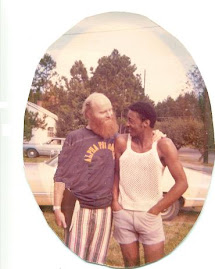Today’s Lections
The Collect
Merciful God, who sent your messengers the prophets to preach repentance and prepare the way for our salvation: Give us grace to heed their warnings and forsake our sins, that we may greet with joy the coming of Jesus Christ our Redeemer; who lives and reigns with you and the Holy Spirit, one God, now and for ever. Amen.Consider the rhetoric of collects. What does the author of the collect intend to accomplish by having people pray it?.
Advent is a season of great expectations, the first season of the Christian new year. It is preparation for the second season, Christmas. This collect prompts us to ask for what the season is to effect: repentance to get us ready for salvation:
To hold great expectations, we must be willing to change, and not just any change. This collect commits us to heed the prophets, to examine ourselves and turn from our sins. For example, the prophet Micah says that God requires only three things of us. In what ways have we failed to
- do justice
- love mercy
- walk humbly
The collect does not prompt us to grovel or wail. Instead, we beseech God: “Give us grace to heed their warnings.” Repentance can be done decently and in good order. How very Episcopalian!
Isaiah 40:1-11
It’s hard for me to read this passage. Handel keeps ringing in my ears. Perhaps the congregation’s best tenor should be the first lector, beginning, “A reading from the prophet Isaiah” and then sing Handel’s solo.
If you don’t have a tenor up to the challenge, invite a lesbian male impersonator to lip-synch it from a recording.
Psalm 85:1-2, 8-13
Benedixisti, Domine
Does the land prosper when people are good? Does famine or other disaster result from our sins?
When things go wrong, are we right to seek out our misbehavior as the cause?
As religious people are we any different from other superstitious people? Why do we so easily see superstition in the faith of another, and no superstition in our own.
Psalm 85 is easier to pray when things are going well:
It is not a psalm for 9/11 nor a psalm to recite while in the eye of Katrina or Ike.
Imagine a community in which Arabs and Jews embrace and support each other. Imagine a community in which men are just as concerned with women’s rights as women are? Imagine a community in which every family dines with a family of another race or culture at least once a month? Imagine a church in which lgbt persons are valued and encouraged..
Then be that community in the making.
2 Peter 3:8-15a
Peter urges us to blend patience with urgency. Expect God to come at any minute, but remember that “with the Lord one day is like a thousand years, and a thousand years are like one day.” Don’t be caught unprepared. And we prepare ourselves by “leading lives of holiness and godliness.”
Leading holy and godly lives not only helps us in our waiting, Peter indicates, but actually “speeds up the coming of the day of the Lord.”
Is that just metaphorical? If it is just metaphorical, is it any less efficacious?
Mark 1:1-8
Have you eaten locusts and wild honey at your coffee hour recently? Or in the sermons?
Imported by Neiman’s from the Gaza Strip? Or with a recipe from your favorite chef on the Food Network?
Today is a good opportunity for a brief Advent Pageant. A young athlete “clothed with camel's hair, with a leather belt around her waist" might interrupt and terminate the sermon repeating this refrain
-- while other children, dressed wildly, move through the congregation passing out candy made with honey, and chocolate covered locusts, or a substitute that crunches like them.
You might invite a quartet from your local gay men’s chorus (or gays from your own parish choir) to end the sermon by singing Holly Near’s We are a Gentle Angry People, and We are Singing for Our Lives. Add verses of your own, especially, “We are lgbt people and we’re singing….”
When the song gets to the verse “We are all in this together,” the singers would invite those in the congregation to join them in singing and processing around the church.
Repent! Do justice. Love mercy. Walk humbly.
See also





1 comment:
I am so grateful for this blog. Please don't stop.
Post a Comment